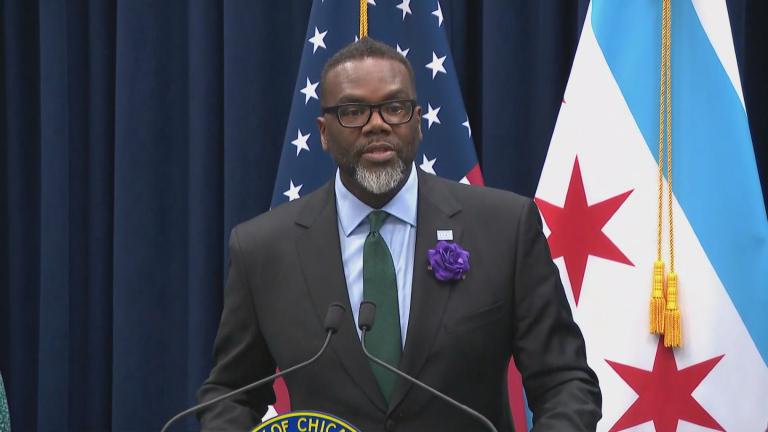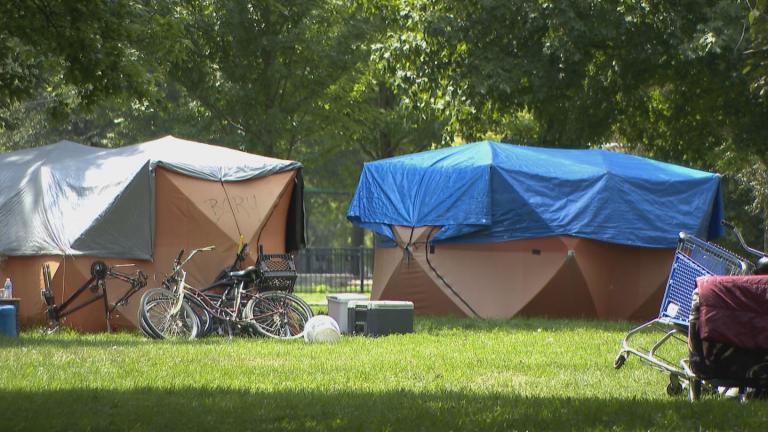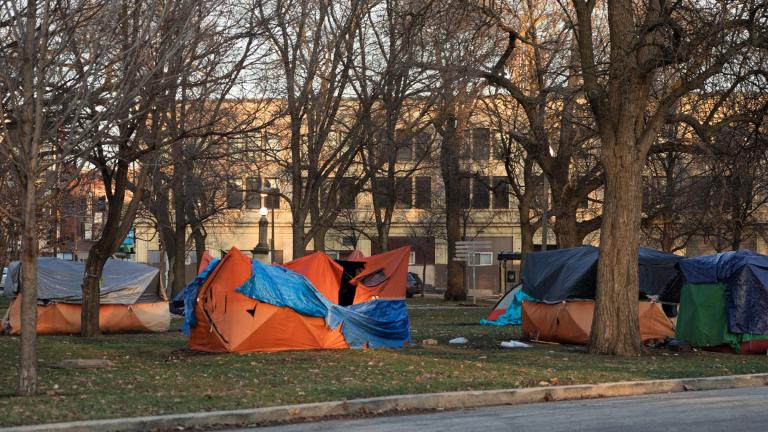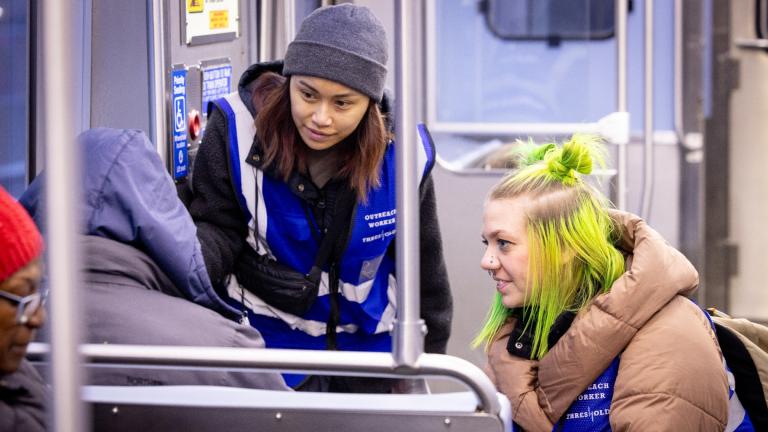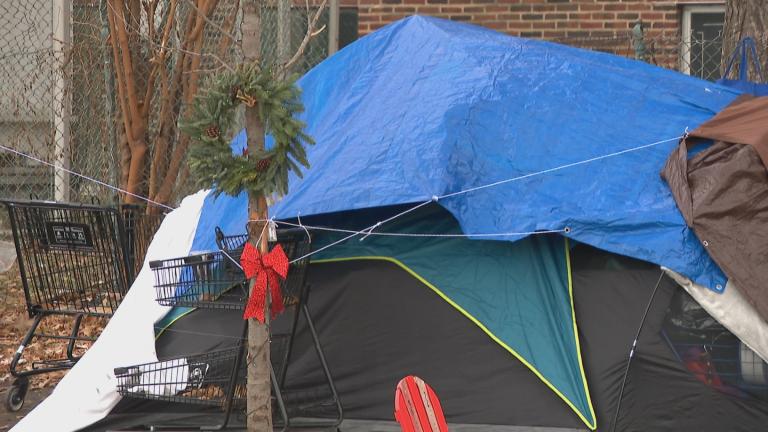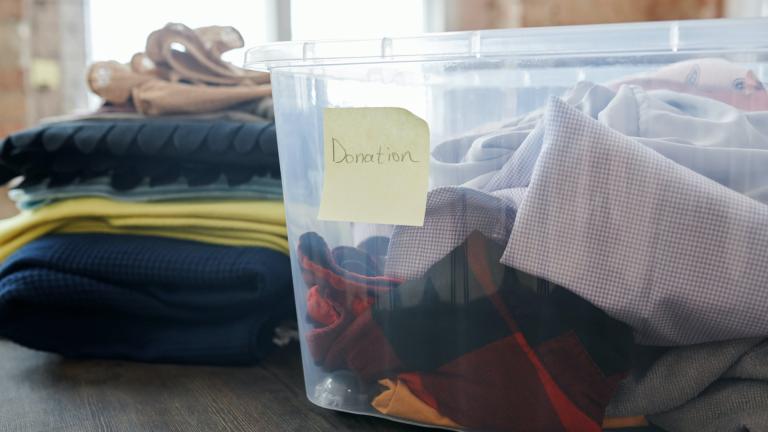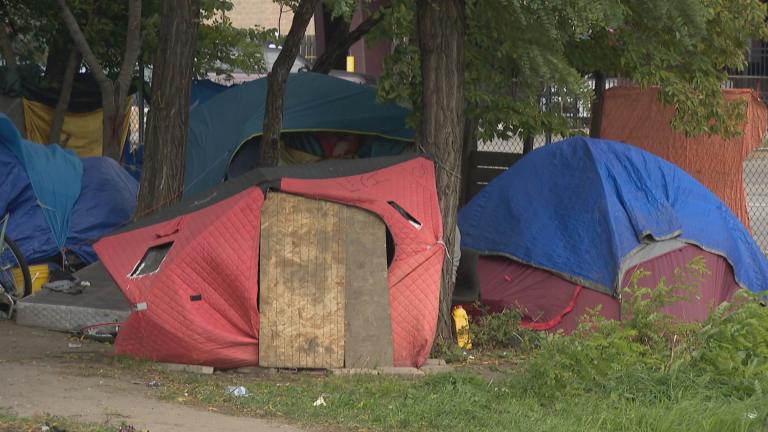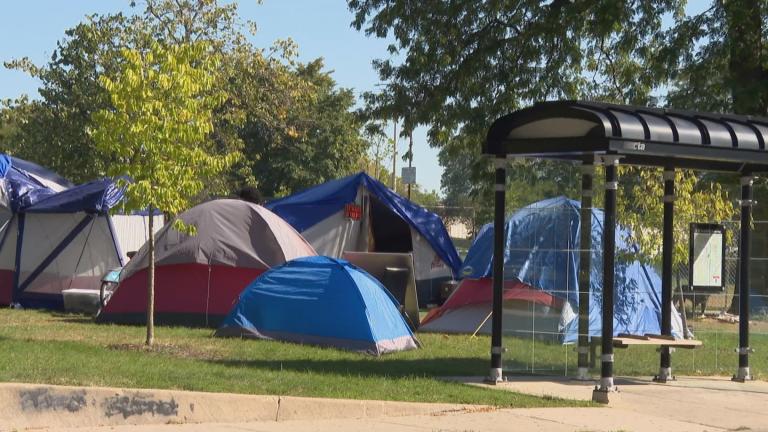After 12,634 mail-in ballots were counted by Chicago election officials late Friday, the results were essentially unchanged. Approximately 53% of voters rejected Ballot Question No. 1, better known as Bring Chicago Home, according to unofficial totals.
Chicago Coalition for the Homeless
“No one said it was going to be easy,” Mayor Brandon Johnson said. “I’m very much committed. The fight still goes on. We’re going to keep organizing.”
The last time Chicago voters passed a binding referendum that applied to the entire city was 1885, when they voted to create the Chicago Board of Election Commissioners, according to city records.
With three of the seven justices abstaining, the state’s highest court rejected an appeal from a coalition of real estate and development groups that sued the Chicago Board of Election Commissioners to knock the ballot measure off Tuesday’s ballot.
A coalition of the real estate and development groups asked the Illinois Supreme Court to reverse an appellate court ruling that overturned a decision by Cook County Judge Kathleen Burke that blocked the Chicago Board of Elections from counting votes for and against the proposal, known as Bring Chicago Home.
A three-judge panel of the 1st District Appellate Court unanimously overturned the Feb. 23 decision by a Cook County judge that invalidated the binding ballot question known as Bring Chicago Home. The ruling could still be appealed to the Illinois Supreme Court.
The proposal known as Bring Chicago Home will remain on the ballot, but the results will not be tallied and reported unless the judge’s decision is overturned by a state appeals court.
The Chicago Coalition for the Homeless estimates more than 68,000 people in Chicago are experiencing homelessness. That higher number includes people who are doubled up, or temporarily living in someone else’s home.
The program has connected dozens of people to housing or shelter, but officials say it needs more funding and time to make a bigger impact.
According to the Chicago Coalition for the Homeless’ recent report, which just became available in Spanish, an estimated 68,000 people are homeless in Chicago.
Supporters say the plan would generate approximately $100 million annually to address the root causes of homelessness by building new permanent housing that offers wraparound services.
Despite the enthusiasm of supporters who held a City Hall rally before the City Council meeting and packed the chambers, Ald. Brendan Reilly (42nd Ward) tried, but failed, to prevent the measure from heading directly to a committee hearing and vote.
With winter fast approaching, the city of Chicago is reminding people that asylum seekers and homeless residents are in need of clothing, toiletries and other items.
The push for the Bring Chicago Home proposal comes as the Chicago Coalition for the Homeless found an estimated 68,440 people experienced homelessness in the city in 2021. That’s a 2,829-person increase from the previous year.
Supporters say the plan would generate approximately $100 million annually to address the root causes of homelessness by building new permanent housing that offers wraparound services.
Despite the enthusiasm of supporters who held a City Hall rally before the City Council meeting and packed the chambers, Ald. Brendan Reilly (42nd Ward) tried, but failed, to prevent it from heading directly to a committee hearing and vote.


